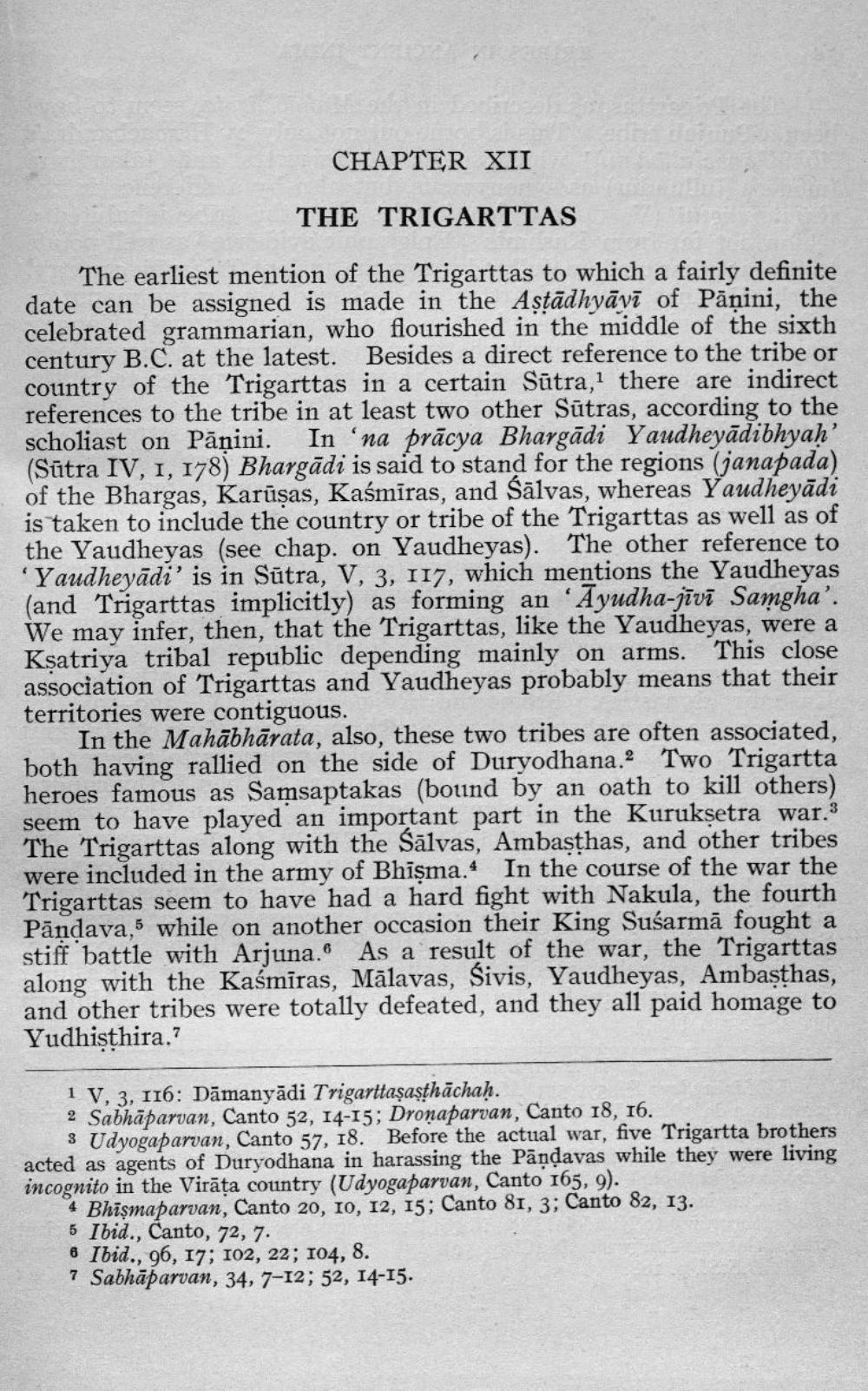________________
CHAPTER XII
THE TRIGARTTAS
The earliest mention of the Trigarttas to which a fairly definite date can be assigned is made in the Astādhyāvī of Pāņini, the celebrated grammarian, who flourished in the middle of the sixth century B.C. at the latest. Besides a direct reference to the tribe or country of the Trigarttas in a certain Sūtra, there are indirect references to the tribe in at least two other Sūtras, according to the scholiast on Pāṇini. In ‘na prācya Bhargādi Yaudheyādibhyah' (Sūtra IV, 1, 178) Bhargādi is said to stand for the regions (janapada) of the Bhargas, Karūsas, Kaśmīras, and Śālvas, whereas Yaudheyādi is taken to include the country or tribe of the Trigarttas as well as of the Yaudheyas (see chap. on Yaudheyas). The other reference to
Yaudheyādi' is in Sūtra, V, 3, 117, which mentions the Yaudheyas (and Trigarttas implicitly) as forming an 'Ayudha-jīvī Samgha'. We may infer, then, that the Trigarttas, like the Vaudheyas, were a Ksatriya tribal republic depending mainly on arms. This close association of Trigarttas and Yaudheyas probably means that their territories were contiguous.
In the Mahābhārata, also, these two tribes are often associated, both having rallied on the side of Duryodhana.2 Two Trigartta heroes famous as Samsaptakas (bound by an oath to kill others) seem to have played an important part in the Kuruksetra war.3 The Trigarttas along with the Sālvas, Ambasthas, and other tribes were included in the army of Bhīşma.4 In the course of the war the Trigarttas seem to have had a hard fight with Nakula, the fourth Pāndava,5 while on another occasion their King Suśarmā fought a stiff battle with Arjuna. As a result of the war, the Trigarttas along with the Kaśmīras, Mālavas, Sivis, Yaudheyas, Ambasthas, and other tribes were totally defeated, and they all paid homage to Yudhisthira.?
1 V. 3. 116: Dāmanvādi Trigarttasasthāchah. 2 Sabhāparvan, Canto 52, 14-15; Dronaparvan, Canto 18, 16.
3 Udyogaparvan, Canto 57, 18. Before the actual war, five Trigartta brothers acted as agents of Duryodhana in harassing the Pandavas while they were living incognito in the Virāta country (Udyogaparvan, Canto 165, 9).
4 Bhīşmaparvan, Canto 20, 10, 12, 15; Canto 81, 3; Canto 82, 13. 5 Ibid., Canto, 72, 7. 8 Ibid., 96, 17; 102, 22; 104, 8. 7 Sabhāparvan, 34, 7-12; 52, 14-15.




